Dissident Iranian journalist invited to Munich Security Conference
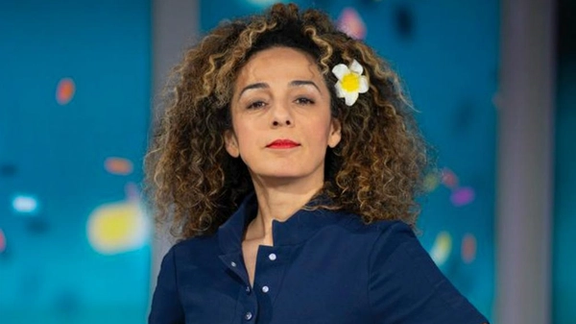
Dissident Iranian journalist and rights activist Masih Alinejad has been invited to the Munich Security Conference, according to a guest list seen by Iran International.

Dissident Iranian journalist and rights activist Masih Alinejad has been invited to the Munich Security Conference, according to a guest list seen by Iran International.
Alinejad received the invitation in mid-January this year.
She also attended the conference last year, where she met with several European politicians and activists, urged the designation of Iran's Revolutionary Guard (IRGC) as a terrorist organization in Europe and highlighted human rights abuses in Iran.
Iranian exiled prince Reza Pahlavi has also been invited to the conference. Earlier, the Munich Security Conference (MSC) told Iran International that Reza Pahlavi's invitation has been maintained, after the exiled prince accused Germany of interfering to block his participation.
Pahlavi took to X to confirm that the MSC had told him his invitation remains in place.
"This conference, like all public engagements, was always about my compatriots and having their voices heard on the world stage. So I will go with a message from the Iranian people: our fight is not just to free Iran, but the world, from the terror and blackmail of the Islamic Republic," Pahlavi wrote.
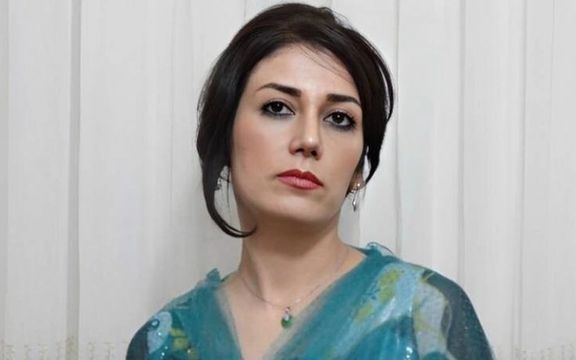
The UN Special Rapporteur on Iran, Mai Sato, has sounded the alarm after Iran’s Supreme Court denied a judicial review for Pakhshan Azizi, a Kurdish political prisoner and humanitarian worker facing a death sentence.
“Her imminent execution would violate international human rights law,” Sato wrote on Friday on X, urging Iranian authorities to “immediately halt her execution.”
Azizi was arrested in August 2023 and sentenced to death for armed rebellion against the state after an Islamic Revolutionary Court trial in Tehran last July.
Rights groups say the charges are politically motivated and linked to her humanitarian work helping women and children displaced by Islamic State attacks in northeast Syria.
Azizi's lawyer, Amir Raisian, wrote on X that they will file another retrial request and appeal to Iran's judiciary chief in a last-ditch effort to stop the execution.
Amnesty International also slammed the decision, saying, “The Iranian authorities must halt the execution of arbitrarily detained humanitarian aid worker Pakhshan Azizi, who was sentenced to death following a grossly unfair trial,”
The organization's deputy director for the Middle East and North Africa Diana Eltahawy also pointed to reports that Azizi was tortured by authorities and faced gender-based violence in detention.
Other rights groups have warned that Azizi’s case reflects a broader pattern of the Iranian state arbitrarily wielding the death penalty to suppress dissent—especially in the wake of the nationwide 2022 protests demanding the government's downfall.
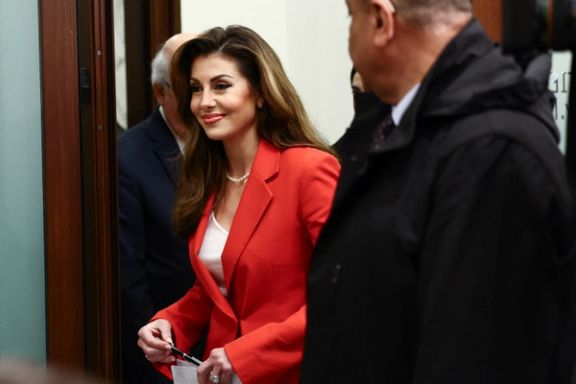
US Deputy Special Envoy for the Middle East, Morgan Ortagus, said on Friday that Hezbollah's "reign of terror" in Lebanon and the region is over, crediting increased US pressure on Iran for the group's decline.
Speaking after meeting with newly elected Lebanese President Joseph Aoun in Beirut, Ortagus said Hezbollah’s involvement in Lebanon’s new government crosses a clear red line for Washington.
"We are committed to making sure that Hezbollah is not a part of this government in any form and that Hezbollah remains disarmed and militarily defeated. That starts with the pressure President Trump is placing on the Islamic Republic of Iran so they can no longer fund their terror proxies in the region," Ortagus said.
Her remarks come as Lebanon’s political landscape experiences what experts have called a seismic shift, with the election of US- and Arab-backed Aoun as president and Hezbollah reeling from its bruising defeats at the hands of Israel.
"The end of Hezbollah’s reign of terror in Lebanon and around the world has started, and it’s over," she said.
Ortagus emphasized that the US will continue efforts to prevent Iran from achieving nuclear capabilities and from destabilizing countries across the Middle East. "Iran was allowed to inflict chaos and harm in this country and so many others for decades, that ends with President Trump," Ortagus said.
Hezbollah suffered its most significant setbacks in years during Israeli strikes last year, with coordinated attacks in September and October decimating thousands of its operatives through precision airstrikes and targeted explosions. The killing of key figures, including Hassan Nasrallah, the group's longtime secretary-general, shattered Hezbollah’s leadership core and left its command structure in disarray.
Keen to limit Hezbollah's influence, Washington is reportedly exerting significant pressure on Lebanon’s political leadership.
As Prime Minister-designate Nawaf Salam works to form his cabinet, US officials are urging Beirut to block Hezbollah and its allies from securing key posts, particularly the finance ministry.
Citing sources, Reuters reported that Washington relayed that Lebanon could face difficulties securing foreign financial aid crucial for post-war reconstruction if Hezbollah or Amal—a Shia political party and longtime Hezbollah ally—were to select the country's next finance minister.
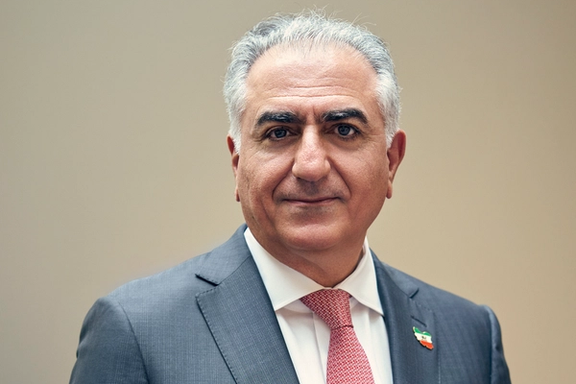
The Munich Security Conference has restored an invitation to Iranian exiled prince Reza Pahlavi after it rescinded it under pressure from the German Foreign Ministry, Iran International has learned.
"We can confirm that the invitation to Mr. Pahlavi to the MSC 2025 will be maintained," an MSC spokesperson wrote in an email to Iran International.
"As in the past, the voices of Iranian civil society and opposition will be represented at MSC 2025," the spokesperson added.
Pahlavi said in a post on X on Thursday that the German Foreign Ministry had blocked his participation in the annual security conference.
Two sources with direct knowledge of the matter told Iran International this week that Christoph Heusgen, the Chairman of the MSC, initially extended the invitation to Pahlavi on January 17, but retracted it about two weeks later under pressure from the German Foreign Ministry.
Berlin's concern about bilateral ties with Tehran
On Thursday, the German Foreign Ministry told journalists that it had no role in the withdrawal of the invitation to Prince Reza Pahlavi.
A German Foreign Ministry spokesperson also told Iran International that "the Munich Security Conference decides independently on its invitations," without offering any further details.
However, an informed source told Iran International the German Foreign Ministry had asked the organizers of the Munich Security Conference to withdraw the invitation, as it believed it would harm its relations with the Islamic Republic.
"The German government was concerned that inviting Prince Pahlavi could endanger the situation of German dual-national prisoners in Iran," the source added.
Pahlavi took to X on Friday to confirm that the MSC had told him his invitation remains in place.
"This conference, like all public engagements, was always about my compatriots and having their voices heard on the world stage. So I will go with a message from the Iranian people: our fight is not just to free Iran, but the world, from the terror and blackmail of the Islamic Republic," Pahlavi wrote.
No invitation for Iran officials
The German news website Zeit cited a conference spokesman saying that the Iranian government has not received an invitation "at this point in time".
The conference did not invite any officials from the Islamic Republic in 2023. However, Iranian diplomat Mohammad Javad Zarif—now Iran's vice president—was a regular invitee when he served as Tehran's foreign minister.
The conference, which is scheduled to begin later in February, has previously welcomed speakers that have criticized the Iranian government.
According to a list of invitees to the Munich Security Conference seen by Iran International, political activist Masih Alinejad has also been invited to the conference.
Pressure continues
The Munich Security Conference was also under pressure in 2023 to withdraw its invitation to Reza Pahlavi, Karim Sadjadpour, a senior fellow at the Carnegie Endowment for International Peace, said in an interview with Aasoo website last year.
"A few days before the Munich conference, one of the organizers—who used to be my student at Georgetown—told me they were under pressure to revoke Reza Pahlavi's invitation," Sadjadpour added.
"He said leftist groups in Germany opposed his presence, and even the German embassy in Tehran had called, warning that if Reza Pahlavi was given a platform, regime hardliners might attack the embassy."
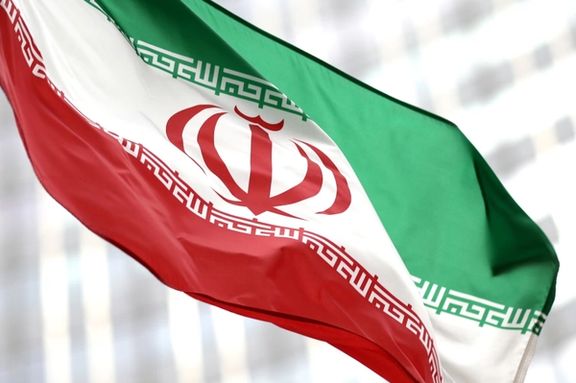
Iran's ambassadors to France and the UK say they remain open to negotiations with the West, despite new US sanctions targeting Iran's oil exports and the reimposition of Trump-era maximum pressure policies.
“We do not reject negotiations, but we demand engagement on equal footing and with mutual respect,” Mohammad Amin Nejad, the Iranian ambassador to France said in an interview with French online media platform Thinkerview.
While acknowledging the impact of US-led sanctions on Iran's economy, he asserted that the country has become adept at self-reliance.
“After the US withdrawal from the JCPOA, we faced severe economic pressures, but the Iranian people are resilient, and the country continues to progress,” Nejad added.
US President Donald Trump reinstated his maximum pressure policy on Iran this month, issuing a directive followed by the first wave of sanctions on Thursday.
These sanctions came after decades of the Iranian state's mismanagement, corruption, and the prioritization of funneling money to terrorism, which had already severely damaged Iran's economy before the US sanctions compounded the crisis.
In London, Ali Matinfar, the Iranian Embassy's chargé d'affaires, echoed similar sentiments to his colleague in France during a ceremony marking the upcoming 46th anniversary of the Islamic Revolution.
The diplomat insisted that Tehran remains committed to the nuclear deal, despite the US withdrawal in 2018 and what he described as Europe's failure to uphold its obligations.
“The Islamic Republic of Iran has continued to adhere to its commitments and has only taken compensatory measures within the framework of the agreement,” Matinfar said on Saturday.
Referring to recent talks with the UK, France, and Germany in Geneva, Matinfar said there is hope for the potential of renewed diplomatic progress.
“Following serious and constructive negotiations, it is hoped that a clearer outlook for future diplomatic engagements will emerge. However, the realization of this depends entirely on the goodwill and confidence-building measures of the Western parties, particularly the United States,” he said.
Iran's Supreme Leader, Ali Khamenei, the country's ultimate authority, said on Friday that negotiating with the US would be neither wise, intelligent, nor honorable.
This follows an ongoing internal divide within the country in recent weeks, with varying factions offering conflicting views on the potential for talks with Washington,
During Trump’s first term, Iran’s oil exports were slashed to almost zero after he re-imposed sanctions that had been lifted under the 2015 nuclear deal between Tehran and world powers.
After the US withdrew from the agreement, there were few attempts at negotiations between Washington and Tehran until the Biden administration took office in 2021, signaling a renewed effort to revive the nuclear deal, but ultimately, no new agreement was reached.

Tehran has condemned the first round of US sanctions targeting individuals and companies accused of facilitating Iranian oil sales, calling the move illegal and unjustified.
“The Islamic Republic of Iran holds the United States accountable for the consequences and repercussions of such unilateral and bullying actions,” Foreign Ministry spokesperson Esmail Baghaei told Iranian media on Friday.
This comes after Washington imposed new sanctions on networks facilitating Iranian oil shipments to China, a move aligned with US President Donald Trump's decision to revive his "maximum pressure" campaign on Tehran.
The sanctions, officially announced by the Treasury Department, target companies and vessels across China, India, and the UAE.
“The decision of the new US administration to exert pressure on the Iranian nation by preventing Iran's legal trade with its economic partners is an illegitimate, unlawful, and wrongful act that entails international responsibility for the US government,” Baghaei said.
The US says Iran funnels billions of dollars of oil revenue into its nuclear program, missile development, and regional militant groups -- including, US-designated terrorist entities Hamas, the Houthis, and Hezbollah.
“The United States is committed to aggressively targeting any attempt by Iran to secure funding for these malign activities,” Treasury Secretary Scott Bessent noted in his statement on Thursday.
During President Trump's first term in office, Tehran's oil exports were reduced to near zero by re-imposing sanctions. Under former US President Joe Biden Iran's oil exports increased starting in 2021 as Tehran found ways to circumvent those sanctions.